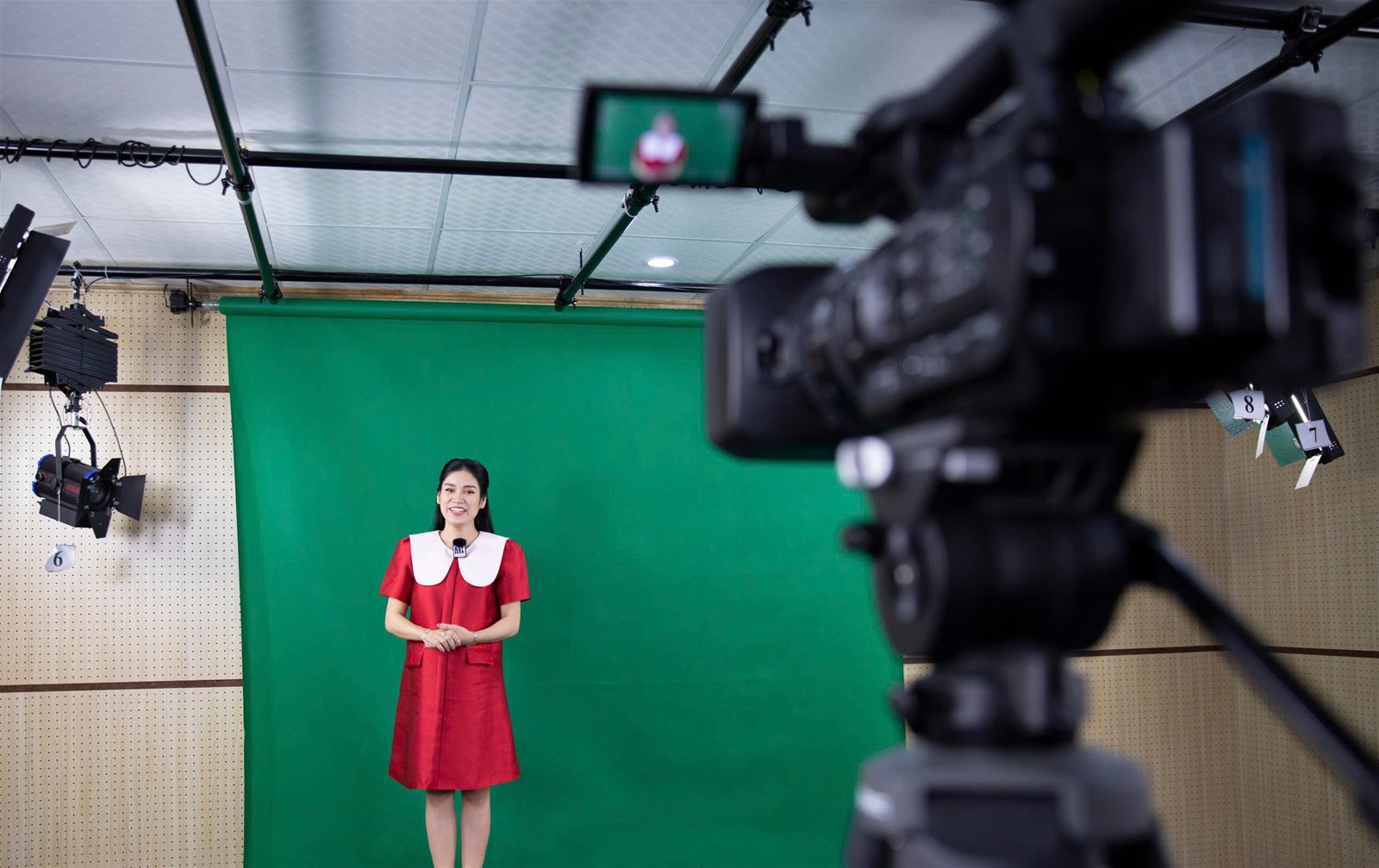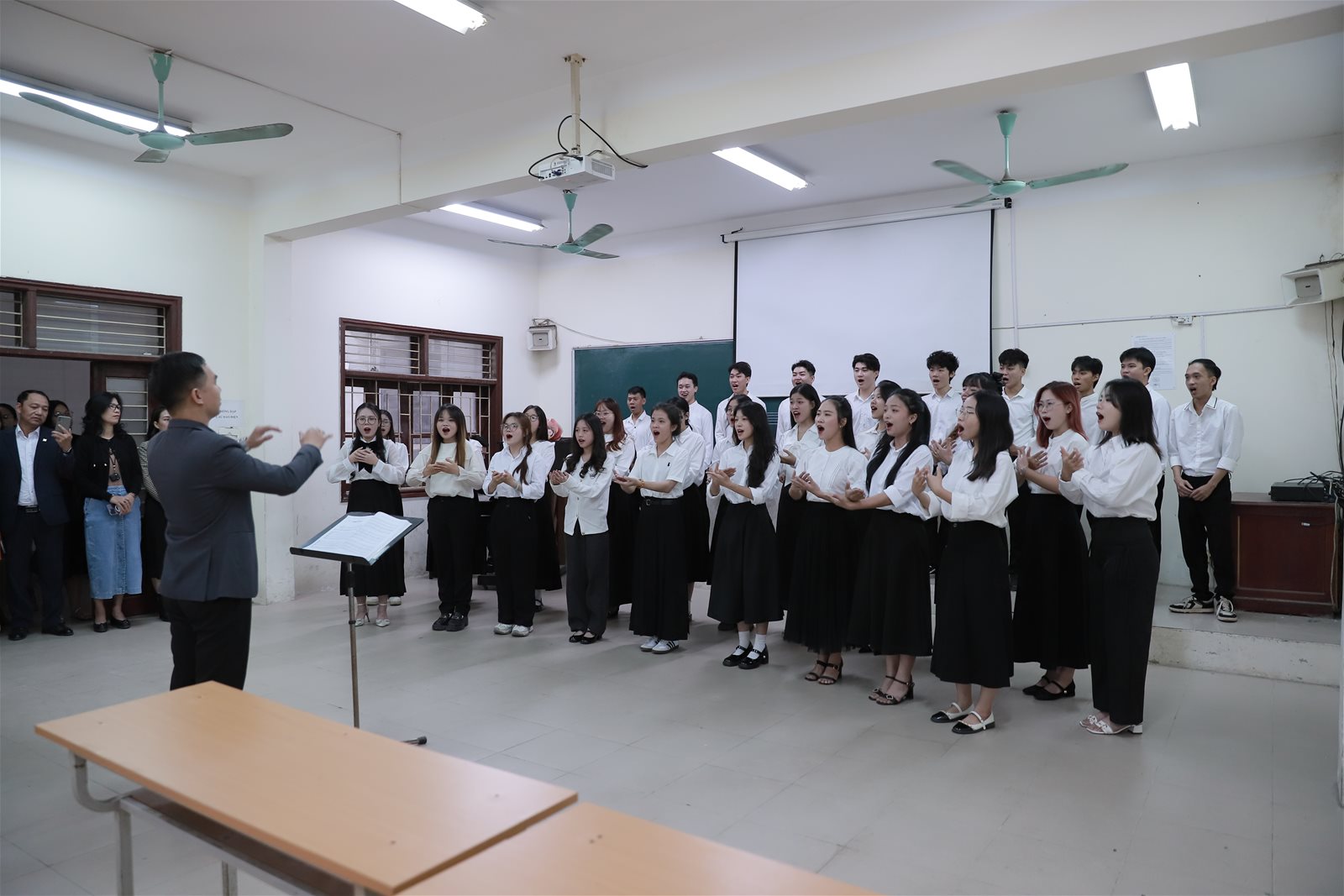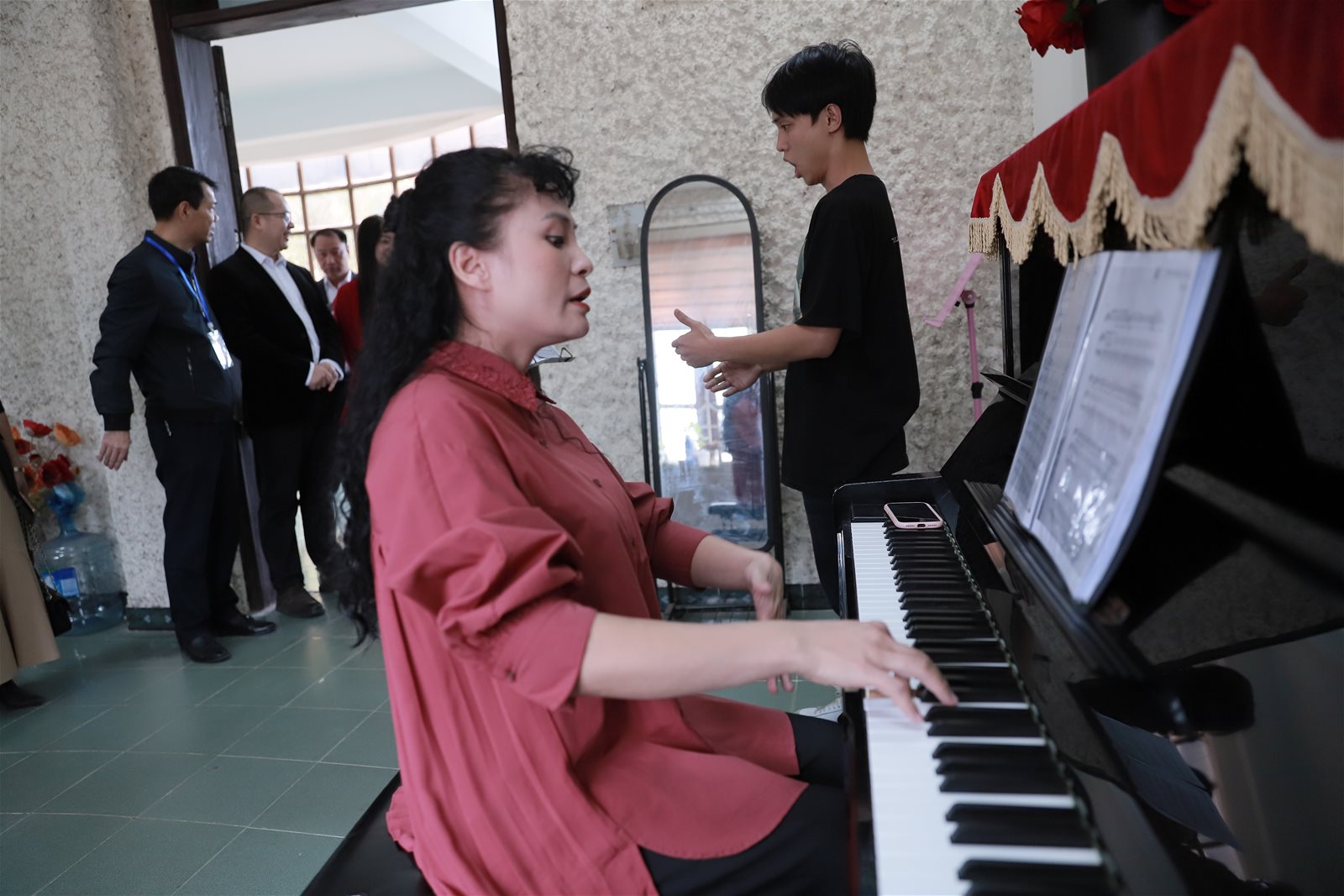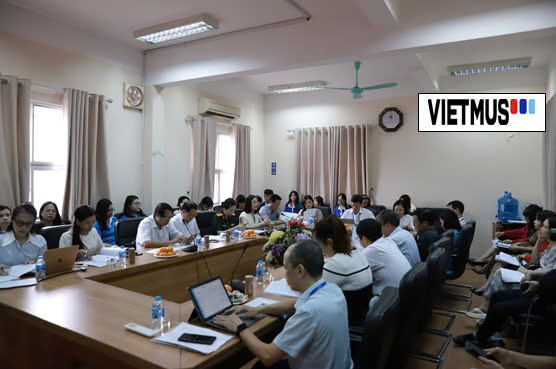THE IMPACT OF THE VIETMUS PROJECT AT
NATIONAL UNIVERSITY OF ART EDUCATION
National University of Art Education is proud to join the first international music project for students, titled "VIETnam Music Universities Spurring - VIETMUS." This initiative is funded by the European Executive Agency for Education and Culture (EACEA) under the auspices of the European Commission through the Erasmus Fund. The project aims to promote music education in universities throughout Vietnam. As the first international music initiative in the arts sector within the country, VIETMUS provides valuable opportunities for participating training institutions and, more broadly, for music education programs in Vietnam to enhance their knowledge and skills in performing arts, modern musical instruments, and digital application in art training.
The VIETMUS project adopts a bottom-up approach, viewing digital transformation as a driving force for innovative training methods, improved resilience skills, remote performance capabilities, and enhanced employment prospects. The initiative begins with the study of international standards and best practices, followed by an evaluation and implementation of technological equipment, staff capacity building, and modernization of the higher education sector. It also aims to foster new partnerships between universities and businesses.
This project addresses several key issues, including improving information technology capabilities in Vietnamese universities, promoting creative technology in performance, tackling challenges faced by the post-Covid music industry, and ensuring sustainable international collaboration among both domestic and foreign universities.

National University of Art Education will actively participate in all six work packages (WPs) of the project. Notably, it will lead WP 4, which focuses on developing an online music training program or a digital music teaching lab called “MUSICHATHON ON SITE LAB,” as well as organizing a remote performance event named “Music Start Cup.”
Currently, the staff at NUAE involved in the VIETMUS project are working enthusiastically and passionately to develop comprehensive guidelines for the Musichathon on-site lab. Their goal is to promote digital transformation in Vietnamese higher education while preparing for the “Music Start Cup” competition. NUAE is expanding its training programs for music lecturers, equipping them with the skills and knowledge needed to effectively utilize technology in distance education. This training focuses not only on technical skills but also on pedagogical strategies for online music teaching.

Additionally, the university is developing an integrated information technology curriculum that aligns with the distance learning model, incorporating engaging content and innovative approaches to attract learners.
Promoting digital transformation and optimizing digital capabilities offers numerous advantages in teaching. Digital transformation in music education enables schools to provide high-quality teaching, learning, and reference materials to students. Digital platforms facilitate the collection, organization, and sharing of knowledge and documents more effectively. Lecturers can leverage digital technologies to offer a richer learning experience through video tutorials, online lectures, and interactive exercises.

Moreover, the application of information technology in teaching allows music universities to reach a larger audience of students and potential learners worldwide. By offering online courses and distance learning platforms, the school helps students overcome geographical and time barriers, creating opportunities for those who are unable to attend traditional classes.
Digital transformation in music education creates an environment that enables students to create and share their own music using digital tools, recording software, and modern audio technology. Additionally, students can easily collaborate by sharing their music projects online. This fosters creativity, facilitates the exchange of ideas, and helps build a diverse online music community.
Proficiency in technology allows students to develop IT skills and become comfortable with online communication - both of which are crucial in the music industry and help establish professional networks. By utilizing digital tools, students become familiar with new technologies, equipping them with the necessary skills to succeed in the modern music industry.

As one of the leading art education universities in the country, National University of Art Education is primarily responsible for developing the online classroom user manual, which is then implemented in member schools both domestically and abroad. The VIETMUS project has provided numerous benefits and practical significance to these member schools in Vietnam and beyond.
